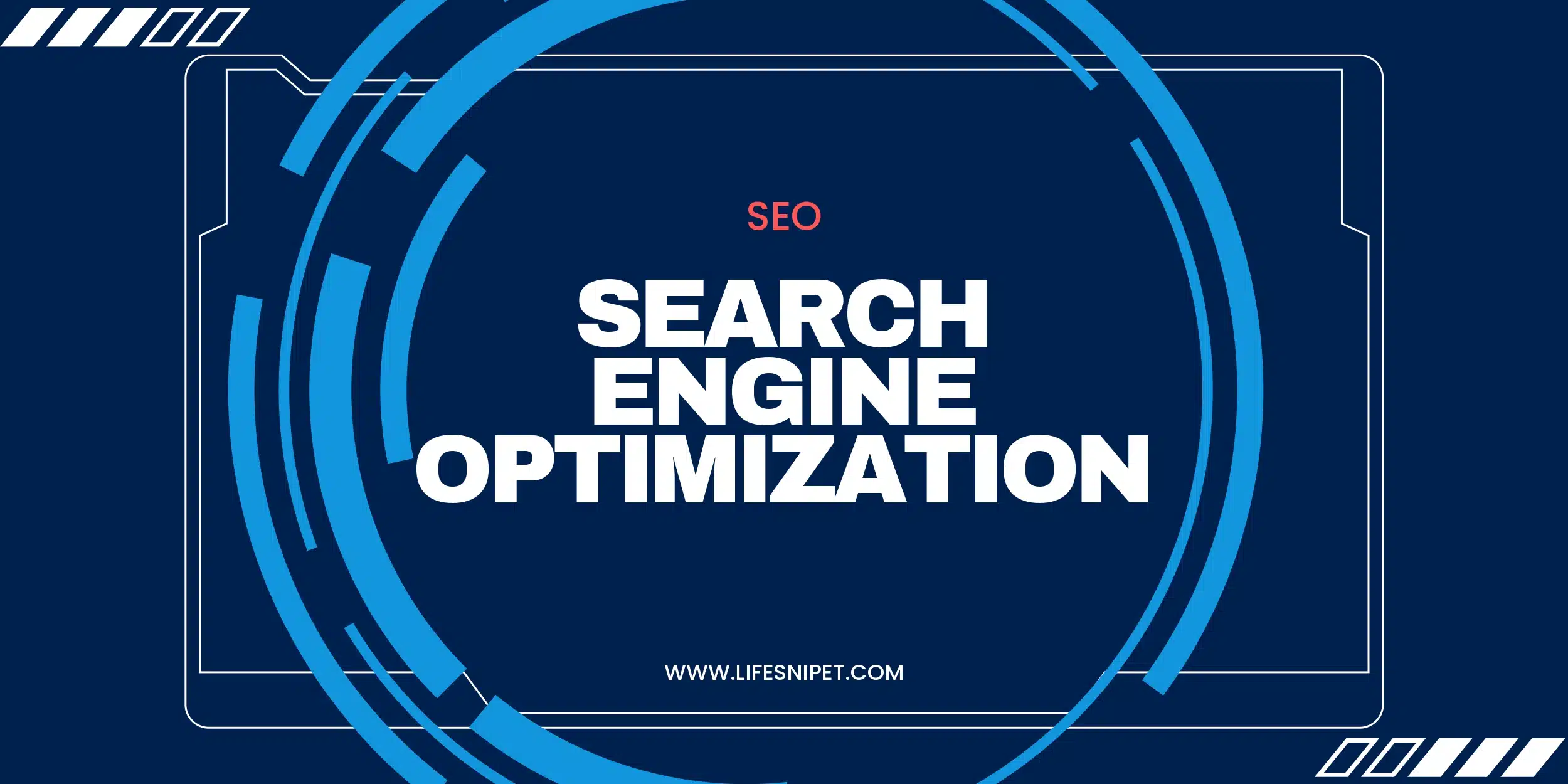As a digital marketer, I have always been fascinated by the power of search engine optimization (SEO) in driving organic traffic to websites. In today’s digital world, where competition is fierce, having a solid SEO strategy is crucial for businesses to succeed online. In this article, I will delve into the intricacies of SEO and how it can help companies to unleash their true potential.
The importance of search engine optimization
Search engine optimization plays a pivotal role in the success of any online business. It is the process of optimizing a website to rank higher in search engine results pages (SERPs), thereby increasing visibility and driving more organic traffic. With billions of searches conducted every day, search engines have become the go-to source for information, making it imperative for businesses to be visible in the search results.
A high ranking in organic search results not only increases website traffic but also establishes credibility and trust among users. Studies have shown that users are more likely to click on organic search results than paid advertisements, as they perceive them to be more relevant and trustworthy. Therefore, investing in SEO can provide businesses with a competitive edge and help them reach their target audience effectively.
Understanding how search engines work
To effectively optimize a website for search engines, it is crucial to understand how they work. Search engines use complex algorithms to crawl and index web pages, considering various factors to determine their relevance and rank in the search results.
One of the key factors search engines consider is the relevance of the content on a webpage to the user’s search query. This is where keyword optimization comes into play. By strategically incorporating relevant keywords in the website’s content, meta tags, and headings, businesses can increase their chances of ranking higher for specific search queries.
Another important aspect is the authority and trustworthiness of a website. Search engines analyze the number and quality of backlinks pointing to a website to assess its credibility. Building high-quality backlinks from reputable websites can significantly boost a website’s SEO efforts.
On-page optimization techniques
On-page optimization refers to the techniques used to optimize individual web pages to improve their search engine rankings. It involves various elements, including keyword research, meta tags, headings, URL structure, and internal linking.
Keyword research is the foundation of on-page optimization. By identifying relevant keywords with high search volumes and low competition, businesses can optimize their content to target specific search queries. Carefully incorporating these keywords in the content, headers, and meta tags can improve a webpage’s visibility in search results.
Meta tags, such as the title tag and meta description, play a crucial role in attracting users to click on a search result. Crafting compelling and keyword-rich meta tags can significantly increase click-through rates and improve website traffic.
Properly structuring headings and subheadings not only makes the content more readable for users but also helps search engines understand the hierarchy and relevance of the content. Using relevant keywords in headings can further enhance the SEO value of a webpage.
Off-page optimization strategies
While on-page optimization focuses on optimizing individual web pages, off-page optimization techniques aim to improve a website’s overall authority and reputation. Off-page optimization primarily revolves around building high-quality backlinks from other websites.
Backlinks are considered as votes of confidence from other websites. The more reputable and relevant websites that link to a webpage, the higher its authority in the eyes of search engines. However, it is essential to focus on quality over quantity when building backlinks. A single high-quality backlink from a reputable website can have a more significant impact on SEO than several low-quality backlinks.
Apart from backlinks, social signals, such as likes, shares, and comments on social media platforms, can also indirectly impact a website’s Search engine optimization (SEO). By creating engaging and shareable content, businesses can increase their chances of generating social signals and driving more organic traffic to their website.
Keyword research and analysis
Keyword research is a fundamental aspect of any successful Search engine optimization (SEO) strategy. It involves identifying the most relevant and high-performing keywords that users are searching for in search engines. By understanding the language and intent of the target audience, businesses can optimize their content to align with their search queries.
There are various tools available to conduct keyword research and analysis. These tools provide valuable insights into keyword search volumes, competition levels, and related keywords. By leveraging this data, businesses can identify low-competition keywords with high search volumes to target in their SEO efforts.
It is also crucial to regularly monitor and analyze keyword performance. By tracking keyword rankings and making data-driven optimizations, businesses can stay ahead of the competition and ensure their content remains relevant and visible in the search results.
Content optimization for search engines
Content is king in the world of Search engine optimization (SEO). High-quality, informative, and engaging content attracts users and helps search engines understand the relevance and value of a webpage. Content optimization involves creating and optimizing content to align with target keywords and user intent.
When crafting content, it is essential to strike a balance between keyword optimization and readability. Keyword stuffing, or excessively using keywords in the content, can harm SEO. Instead, keywords should be naturally incorporated into the content, headings, and meta tags.
Including multimedia elements, such as images, videos, and infographics, can also enhance the overall user experience and improve SEO. Optimizing multimedia elements with descriptive file names, alt text, and captions can make them discoverable in search engines and drive additional organic traffic.
Regularly updating and refreshing content is another crucial aspect of content optimization. Search engines favor fresh and up-to-date content, as it indicates relevance and reliability. By regularly publishing new content and revisiting existing content, businesses can improve their SEO efforts and maintain a competitive edge.
Technical SEO: Optimizing website structure and performance
Technical SEO focuses on optimizing the technical aspects of a website to improve its visibility and performance in search engines. It involves various elements, including website speed, mobile-friendliness, crawlability, and site structure.
Website speed is a critical ranking factor in search engine algorithms. Slow-loading websites not only frustrate users but also receive lower rankings in search results. Optimizing website speed involves minimizing server response time, compressing images, and leveraging browser caching.
With the increasing use of mobile devices for browsing, mobile-friendliness has become a crucial aspect of SEO. Websites that are not optimized for mobile devices receive lower rankings in mobile search results. Implementing responsive design, optimizing for mobile page speed, and ensuring a seamless user experience across devices are essential for mobile Search engine optimization (SEO).
Crawlability refers to how easily search engine bots can crawl and index a website. Optimizing crawlability involves creating a sitemap, fixing broken links, and optimizing URL structure. A well-structured website with clean URLs and a logical hierarchy makes it easier for search engines to understand and index the content.
Local SEO: Targeting specific geographic areas
For businesses targeting specific geographic areas, local SEO is of utmost importance. Local SEO involves optimizing a website to rank higher in local search results, especially for location-based queries. This is crucial for businesses with physical storefronts or those providing services in specific areas.
To optimize for local SEO, businesses need to claim and optimize their Google My Business listing. This involves providing accurate and consistent information, such as address, phone number, and business hours. Encouraging customers to leave reviews can also significantly impact local Search engine optimization (SEO).
Citations, which are online mentions of a business’s name, address, and phone number, also play a crucial role in local SEO. Building high-quality citations on reputable directories and websites can improve a business’s visibility in local search results.
Implementing location-specific keywords in content, meta tags, and headings can further enhance local SEO efforts. By tailoring the website’s content to the specific needs and preferences of the local audience, businesses can increase their visibility and attract more local customers.
Measuring the success of your SEO efforts
Measuring the success of SEO efforts is essential to determine the effectiveness of the strategies implemented. Various metrics can be used to evaluate Search engine optimization (SEO) performance, including organic traffic, keyword rankings, backlink profiles, and conversion rates.
Analyzing organic traffic provides insights into the overall visibility and reach of a website. By monitoring the trends and patterns in organic traffic, businesses can identify areas for improvement and make data-driven optimizations.
Keyword rankings indicate how well a website is performing for specific search queries. Regularly tracking keyword rankings and comparing them to competitors can help businesses gauge their SEO performance and identify opportunities for improvement.
Backlink profile analysis involves assessing the quality and quantity of backlinks pointing to a website. By monitoring the growth of backlinks and analyzing their relevance and authority, businesses can ensure they are building a strong and diverse backlink profile.
Conversion rates are a crucial metric for evaluating the effectiveness of SEO efforts. Ultimately, the goal of SEO is not just to drive traffic but to convert that traffic into leads or customers. By tracking conversion rates and analyzing the sources of converting traffic, businesses can optimize their SEO strategies to maximize conversions.
Common SEO mistakes to avoid
While Search engine optimization (SEO) can be highly effective when done right, there are some common mistakes that businesses should avoid. These mistakes can hinder the effectiveness of SEO efforts and prevent businesses from achieving their desired results.
One common mistake is keyword stuffing, which involves excessively using keywords in the content. Keyword stuffing not only makes the content less readable for users but also raises red flags for search engines, potentially leading to penalties.
Another mistake is neglecting the importance of high-quality content. Thin or low-quality content not only fails to provide value to users but also receives lower rankings in search results. Investing in creating informative and engaging content is crucial for SEO success.
Ignoring mobile optimization is another significant mistake. With the increasing use of mobile devices, having a mobile-friendly website is essential for SEO. Failing to optimize for mobile devices can result in lower rankings in mobile search results.
Finally, neglecting the technical aspects of SEO can hinder a website’s visibility and performance. Issues such as slow page speed, broken links, and poor site structure can negatively impact SEO. Regularly auditing and optimizing the technical aspects of a website is crucial for SEO success.
The future of search engine optimization
As technology continues to evolve, so does the field of search engine optimization. The future of SEO lies in keeping up with these advancements and adapting strategies accordingly. Here are a few trends that are shaping the future of SEO:
- Voice search: With the rise of virtual assistants and smart speakers, voice search is becoming increasingly prevalent. Optimizing for voice search involves focusing on long-tail keywords, natural language, and featured snippets.
- Artificial intelligence: AI-powered algorithms are improving search engine capabilities, allowing them to better understand user intent and deliver more relevant results. AI can also assist in automating certain SEO tasks, such as content creation and optimization.
- Mobile-first indexing: Google’s mobile-first indexing means that the mobile version of a website is considered the primary version for ranking and indexing. Optimizing for mobile devices will continue to be crucial for SEO success.
- User experience: Search engines are placing more emphasis on user experience as a ranking factor. Websites that provide a seamless and engaging user experience are more likely to rank higher in search results.
Conclusion
Search engine optimization (SEO) is a powerful tool that can drive organic website traffic and help businesses succeed in the digital landscape. By understanding the importance of SEO, the intricacies of search engines, and implementing effective optimization strategies, companies can unleash the full potential of their online presence. Remember, SEO is a long-term investment, and continuous monitoring and optimization are key to staying ahead of the competition.
FAQs
Q: How long does it take to see results from SEO?
A: SEO is a long-term strategy, and it can take several months to start seeing significant results. The timeline depends on various factors, including the competitiveness of the industry, the quality of the website, and the effectiveness of the optimization strategies implemented.
Q: Can I do SEO on my own, or do I need to hire an agency?
A: It is possible to do SEO on your own, but it requires a deep understanding of SEO best practices and a significant investment of time and effort. Hiring an experienced SEO agency can provide businesses with the expertise and resources needed to implement effective SEO strategies.
Q: Are there any shortcuts or quick fixes for SEO?
A: While there may be some short-term tactics that can yield quick results, they are often frowned upon by search engines and can lead to penalties. SEO is a long-term game, and sustainable results can only be achieved through consistent and ethical optimization efforts.
Q: How often should I update my website’s content for SEO?
A: Regularly updating and refreshing your website’s content is beneficial for SEO. However, the frequency of updates depends on various factors, including the industry, the type of content, and user demand. It is essential to strike a balance between keeping content fresh and ensuring quality and relevance.
Q: Is SEO a one-time effort, or does it require continuous optimization?
A: SEO is an ongoing process that requires continuous monitoring and optimization. Search engine algorithms are constantly evolving, and competition is fierce. To maintain and improve SEO rankings, businesses need to regularly analyze data, make necessary optimizations, and stay up-to-date with industry trends and best practices.

Welcome to LifeSnipet! At LifeSnipet, we’re your ultimate source for the latest health updates. Specializing in health and fitness-related diseases, we delve deep into Ayurvedic techniques, providing you with a comprehensive understanding of well-being. Explore our real-time updates, detailed articles, and ancient Ayurvedic wisdom for a holistic approach to health. Embark on a journey to a healthier, vibrant life with LifeSnipet – where your well-being is our priority!











